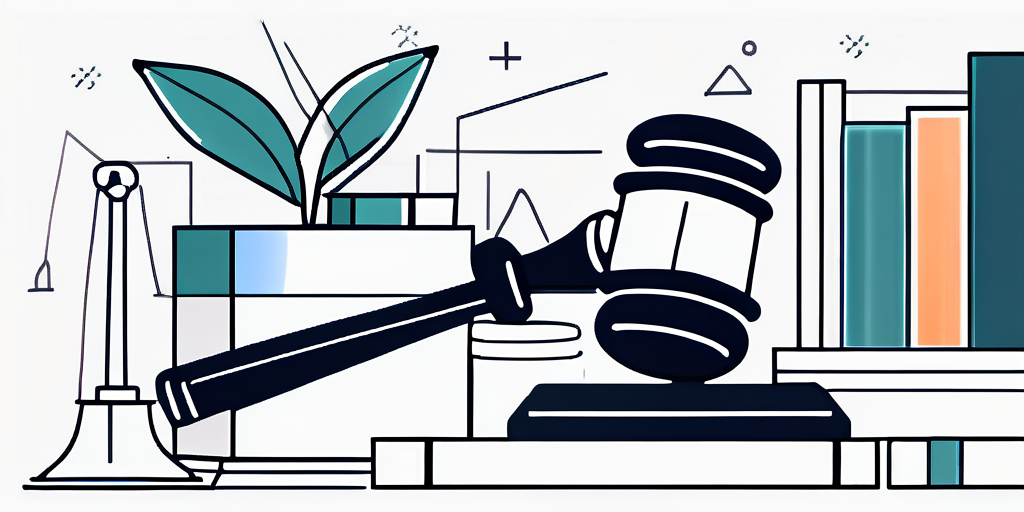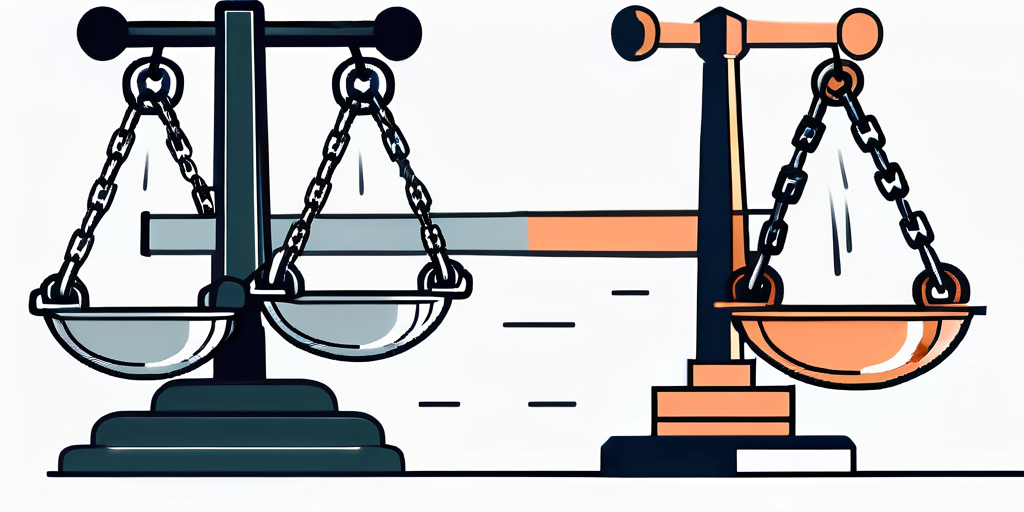Dropshipping has become a popular business model in recent years, but many people still have questions about its legality. In this article, we will explore the legal aspects of dropshipping, common legal issues that can arise, and how you can ensure that your dropshipping business is operating within the boundaries of the law.
Understanding Dropshipping
Before diving into the legalities, let’s first define what dropshipping actually means. It is a business model where an online retailer does not keep the products it sells in stock. Instead, when a store sells a product, it purchases the item from a third party and has it shipped directly to the customer. This means that the retailer never directly handles the product.
Definition of Dropshipping
Dropshipping is a fulfillment method that enables businesses to sell products without having to carry any inventory. The retailer acts as the middleman between the supplier and the customer, taking orders and transferring them to the supplier for fulfillment. This allows the retailer to focus on marketing and customer service rather than storing and shipping products.
How Dropshipping Works
When a customer places an order on a dropshipping store, the retailer notifies the supplier, who then ships the products directly to the customer. The retailer’s profit is the difference between the wholesale price paid to the supplier and the retail price charged to the customer.
One of the key advantages of dropshipping is that it eliminates the need for a retailer to invest heavily in inventory upfront. This can be particularly beneficial for entrepreneurs who are just starting out and have limited capital. By not having to purchase and store inventory, retailers can focus their resources on other aspects of their business, such as marketing and customer acquisition.
Another advantage of dropshipping is the flexibility it offers. Since retailers are not tied to a specific inventory, they have the freedom to test different products and niches without the risk of being stuck with unsold inventory. This allows them to quickly adapt to market trends and customer preferences, ensuring that they are always offering products that are in demand.
However, it’s important to note that dropshipping also comes with its own set of challenges. For example, since the retailer is not directly handling the products, they have little control over the quality and shipping process. This means that they must rely on their suppliers to deliver the products in a timely manner and in good condition. Building strong relationships with reliable suppliers is crucial for the success of a dropshipping business.
Additionally, retailers must also consider the legal aspects of operating a dropshipping business. This includes understanding and complying with consumer protection laws, ensuring that product descriptions and images are accurate, and handling returns and refunds in a fair and transparent manner. It’s important to consult with legal professionals to ensure that all legal requirements are met.
In conclusion, dropshipping is a business model that offers entrepreneurs the opportunity to start an online retail business without the need for a large upfront investment in inventory. It provides flexibility and the ability to quickly adapt to market trends, but it also comes with challenges and legal considerations. By understanding the intricacies of dropshipping and taking the necessary steps to address its challenges, entrepreneurs can build successful and profitable online businesses.
Legal Aspects of Dropshipping
When operating a dropshipping business, it is important to be aware of the legal framework in which you operate. Here are some of the key legal considerations:
International Laws and Regulations
Dropshipping allows retailers to reach customers all over the world. However, this also means that they must comply with the laws and regulations of different countries. It is crucial to understand the import/export laws, customs regulations, and any product-specific regulations of the target market.
For example, let’s say you are dropshipping clothing items from your online store to customers in various countries. Each country may have its own regulations regarding the importation of textiles, including labeling requirements, safety standards, and restrictions on certain materials. Familiarizing yourself with these regulations will ensure that you are in compliance and avoid any potential legal issues.
Intellectual Property Rights
Another important legal aspect is intellectual property rights. It is essential to ensure that the products you are selling do not infringe on any trademarks, copyrights, or patents. Conducting thorough research and partnering with reputable suppliers can help mitigate the risk of legal issues in this regard.
For instance, let’s say you decide to dropship a popular branded watch. Before doing so, it is crucial to verify that you have obtained the necessary authorization from the brand owner or distributor to sell their products. Selling counterfeit or unauthorized goods can lead to severe legal consequences, including lawsuits and damage to your business reputation.
In addition to trademarks, copyrights, and patents, it is also important to be aware of other intellectual property rights, such as trade secrets and design rights. By understanding and respecting these rights, you can ensure that your dropshipping business operates within the legal boundaries and maintains a positive reputation in the market.
Common Legal Issues in Dropshipping
While dropshipping can be a lucrative business model, there are some common legal issues that may arise:

Supplier Issues
One challenge in dropshipping is relying on suppliers to fulfill orders promptly and accurately. If a supplier fails to deliver products as promised, it can lead to customer complaints and potential legal issues. Establishing clear agreements and guidelines with suppliers can help minimize these risks.
When it comes to dropshipping, choosing the right suppliers is crucial. Conducting thorough research and due diligence can save you from potential headaches down the line. It’s important to consider factors such as the supplier’s reputation, reliability, and track record. Additionally, having a backup plan or alternative suppliers in place can help mitigate any disruptions in the supply chain.
Customer Complaints and Returns
Customer satisfaction is vital in any business, and dropshipping is no exception. It is crucial to have a clear return policy and provide excellent customer service to address any complaints or issues that may arise. Failing to do so can damage your business reputation and potentially result in legal action.
When handling customer complaints, it’s important to be proactive and responsive. Promptly addressing any concerns and offering fair solutions can help maintain positive customer relationships. Additionally, keeping detailed records of all customer interactions and resolutions can serve as valuable evidence in case of any legal disputes.
Furthermore, it’s essential to stay updated on consumer protection laws and regulations in your target market. Understanding your obligations as a dropshipper and ensuring compliance with relevant laws can help protect your business from legal repercussions.
Ensuring Your Dropshipping Business is Legal
Running a legally compliant dropshipping business requires attention to detail and proactive measures. Here are some actions you can take to ensure your business operates within the legal boundaries:

Necessary Legal Documentation
Obtain all necessary legal documents for your business, such as a business license, tax identification number, and any required permits. Consult with a legal professional to ensure that you have all the necessary documentation in place.
Ethical Business Practices
Operating ethically is not just a legal obligation but also essential for building a reputable and sustainable business. Avoid deceptive marketing techniques, ensure your product descriptions are accurate, and provide transparent and honest customer service.
However, legal compliance and ethical practices are just the foundation of a successful dropshipping business. To truly thrive in this competitive industry, it’s important to go above and beyond the basics.
One way to set yourself apart from the competition is by establishing strong relationships with your suppliers. Building a network of reliable and trustworthy suppliers can ensure that you consistently deliver high-quality products to your customers. Take the time to research and vet potential suppliers, considering factors such as their reputation, product quality, and shipping times.
Additionally, staying up to date with the latest industry trends and regulations can give you a competitive edge. The dropshipping landscape is constantly evolving, with new technologies, marketplaces, and consumer preferences emerging. By staying informed, you can adapt your business strategies accordingly and stay ahead of the curve.
Furthermore, investing in customer satisfaction can lead to long-term success. Providing exceptional customer service, addressing concerns promptly, and offering hassle-free returns can help build customer loyalty and generate positive word-of-mouth. Remember, satisfied customers are more likely to become repeat customers and refer your business to others.
Lastly, don’t underestimate the power of marketing. Developing a strong online presence through social media, search engine optimization, and targeted advertising can help you reach a wider audience and attract potential customers. Consider investing in professional branding and marketing strategies to effectively showcase your products and differentiate yourself from competitors.
In conclusion, while legal compliance and ethical practices are crucial, expanding your dropshipping business requires going the extra mile. By focusing on supplier relationships, staying informed, prioritizing customer satisfaction, and implementing effective marketing strategies, you can position your business for long-term success in the dynamic world of dropshipping.
Legal Consequences of Illegal Dropshipping
If you engage in illegal dropshipping practices, there can be serious legal consequences:

Penalties and Fines
Violating laws and regulations can result in substantial penalties and fines. These can vary depending on the country and the specific violation. It is crucial to familiarize yourself with the applicable laws and ensure compliance to avoid these penalties.
Impact on Business Reputation
Engaging in illegal dropshipping practices can not only lead to legal consequences but can also severely damage your business reputation. Negative reviews, customer complaints, and a tarnished brand image can be difficult to recover from.
Conclusion
In conclusion, dropshipping is a legal business model as long as you operate within the boundaries of the law. By understanding the legal aspects, addressing common legal issues, and ensuring ethical business practices, you can build a successful and legally compliant dropshipping business.

